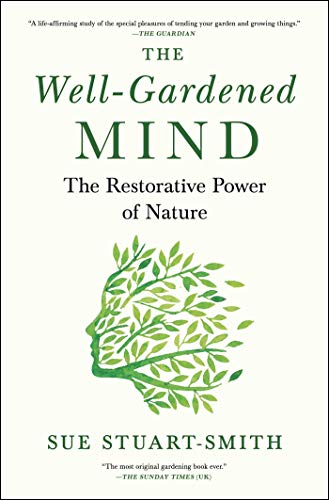 Cleve West was one of the panelists for the October 2020 Northwest Horticultural Society Symposium, Gardening for the Future: Diversity and Ecology in the Urban Landscape. In his presentation, he mentioned several books that have influence his thinking. One of those is “The Well Gardened Mind: The Restorative Power of Nature” by Sue Stuart-Smith.
Cleve West was one of the panelists for the October 2020 Northwest Horticultural Society Symposium, Gardening for the Future: Diversity and Ecology in the Urban Landscape. In his presentation, he mentioned several books that have influence his thinking. One of those is “The Well Gardened Mind: The Restorative Power of Nature” by Sue Stuart-Smith.
An active gardener, married to a garden designer (Tom Stuart-Smith), the author’s research shows that humans have grown flowers for ornamental purposes for at least 5,000 years, suggesting pleasure was an important factor in evolutionary development. “The cultivated flower’s niche in the ecosystem is therefore a human emotional niche.”
Although English, Stuart-Smith makes reference to the research of Gregory Bratman of the University of Washington, who found that urban dwellers had improved mental health function after a 90-minute walk in a park setting. The benefits were not shared by a control group that walked along a roadway.
Stuart-Smith includes a chapter on “War and Gardening”, highlighting how soldiers found refuge in small plantings in the most horrific of settings (the Miller Library has other books devoted to this topic). A garden is a statement in opposition to the carnage of battle and a means to maintain some level of sanity.
The author, a psychiatrist, devotes parts of this book to a brief biography of Sigmund Freud (1856-1939), the founder of psychoanalysis, focusing on his appreciation of flowers, both in the wild and in garden settings. His favorites included gardenias and the poet’s daffodil (Narcissus poeticus), the latter he knew as a wild flower growing in meadows near a favorite holiday home in the Austrian Alps. Yes – Freud did have opinions on the meaning of flowers in dreams. I direct you to pages 144-147 of Stuart-Smith’s book to learn more.
Friends of Freud knew of his love of flowers and these were often gifts on his birthday. Stuart-Smith highlights studies that suggest flowers give longer and deeper satisfaction than any other type of gift. Writing this review, on a gloomy, rainy day, shortly before Valentine’s Day, I can especially anticipate this flower power. Although, chocolate works pretty well, too!
Published in Garden Notes: Northwest Horticultural Society, Spring 2021